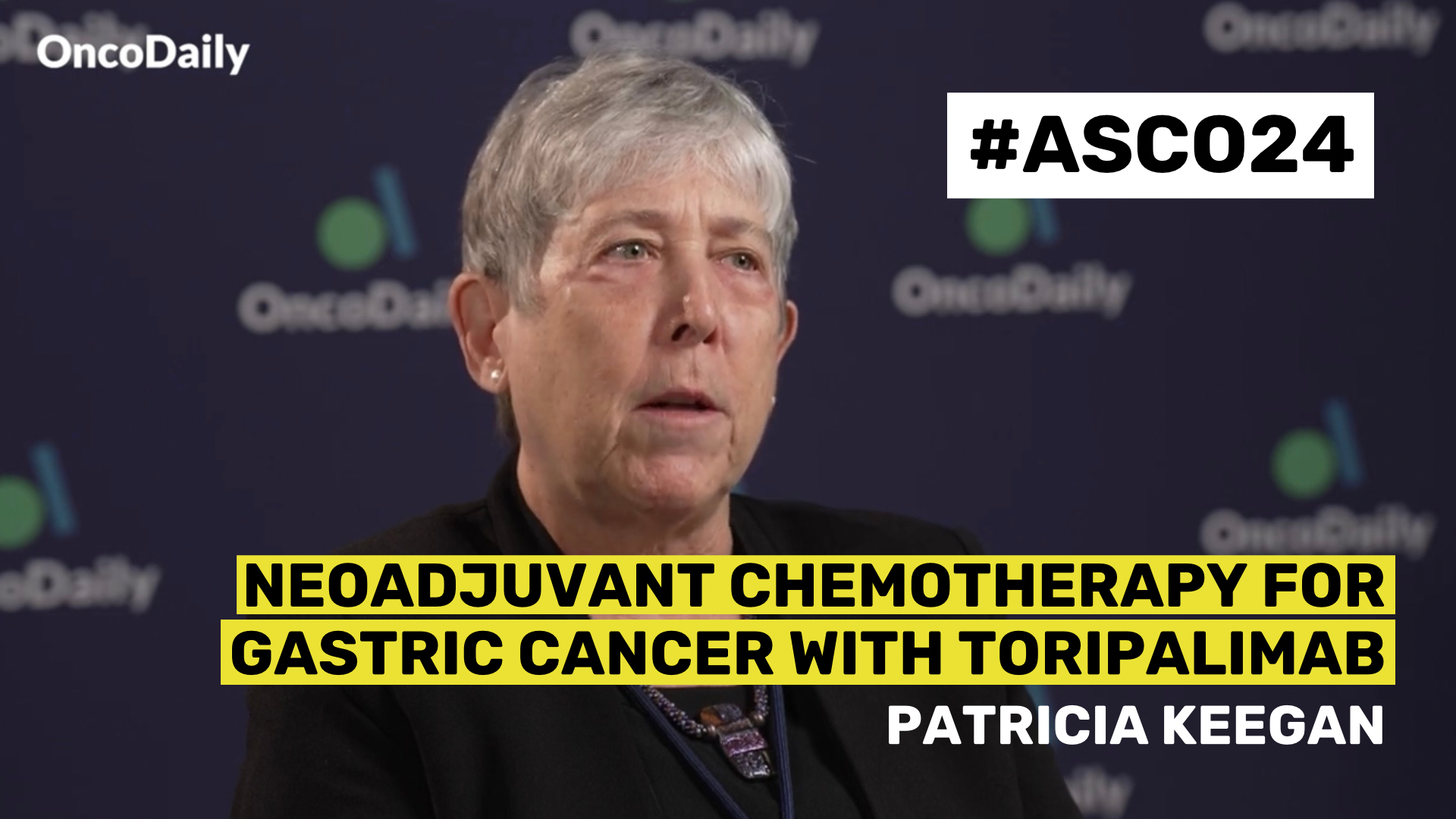The American Society of Clinical Oncology (ASCO) Annual Meeting is one of the largest and most prestigious conferences in the field of oncology. This year, the meeting took place from May 31 to June 4 in Chicago, Illinois. The event gathers oncologists, researchers, and healthcare professionals from around the world to discuss the latest advancements in cancer research, treatment, and patient care. Keynote sessions, research presentations, and panel discussions are typically part of the agenda, providing attendees with valuable insights into emerging trends and innovations in oncology.
This year, OncoDaily was at ASCO 2024 for the first time covering the meeting on-site. We had the pleasure of interviewing researchers who summarized the highlights of their work.
In this video, Dr. Patricia Keegan, Chief Medical Officer of TopAlliance Bioscience, shared insights on ‘Phase I dose-escalation and cohort expansion study of the anti-BTLA antibody, tifcemalimab, in combination with toripalimab (anti-PD-1) in heavily pretreated patients (pts) with advanced malignancies.‘
Hello, my name is Dr. Patricia Keegan. I’m the Chief Medical Officer for Top Alliance Biosciences, the U.S. subsidiary for Junshi Biosciences in Shanghai, and I’m very happy to be able to address today the abstract on behalf of my colleagues, Dr. Gao and others in China, regarding the abstract evaluating optimal neoadjuvant chemotherapy for patients with gastric cancer stages, clinical stages 2 and 3 or node positive, in combination with toripalimab.
The purpose of this trial was to evaluate not only the addition, the safety of the addition of toripalimab to Flock chemotherapy, but to further evaluate whether dose intensification or deintensification would be appropriate treatment strategies in this setting, and whether the optimal chemotherapy was dependent upon the patient’s PD-L1 status.
In this study of 70 patients, the patients were randomized one-to-one to traditional Flock chemotherapy every two weeks for a total of four cycles, in combination with toripalimab, 240 milligrams every two weeks, and then underwent surgical resection, or to three cycles of Flock chemotherapy administered at the traditional doses, but in an every three-week or every 21-day schedule, in combination with toripalimab, 240 milligrams every three weeks.
The trial demonstrated that the pathologic complete response rate was slightly higher than in historical controls at approximately 25 percent, and was similar in the every two-week regimen and in the every three-week regimen. However, the pathologic complete response rates were slightly different depending upon a patient’s PD-L1 status.
Among patients in Arm A, the pathologic complete response rate in patients who were PD-L1 negative was higher than among those that were PD-L1 negative and received in the every three-week regimen, indicating that the traditional chemotherapy regimen dose intensification was necessary for patients who were PD-L1 negative. In contrast, patients who were PD-L1 positive exhibited a substantially higher pathologic complete response rate while receiving a less intensive every three-week Flock regimen as compared to the traditional regimen.
Given the patients in Arm A experienced greater hematologic toxicity and were more likely to have dose delays and were less likely to be able to complete all planned neoadjuvant therapy, approximately a third were able to complete planned neoadjuvant therapy as compared to 10 percent in the deintensified or every three-week regimen, it is clear that a less intensive therapy may be more appropriate in patients receiving Flock chemotherapy plus toripalimab if they are PD-L1 positive tumors.
In addition, there was evidence, there is biomarker evidence obtained in this study that suggests the reason that this might be the case. Patients had higher T-cell subsets, including those most likely to be indicators for tumor-specific T-cell subsets in the every three-week regimen arm or the deintensified arm. Thus, there’s a plausible reason for patients in that arm performing better.
And it would suggest that there should be further evaluation of the optimal therapy and the optimal amount of chemotherapy in patients with PD-L1 positive tumors. This is the intent of the authors in future studies.
More videos and content from ASCO 2024 on OncoDaily.
